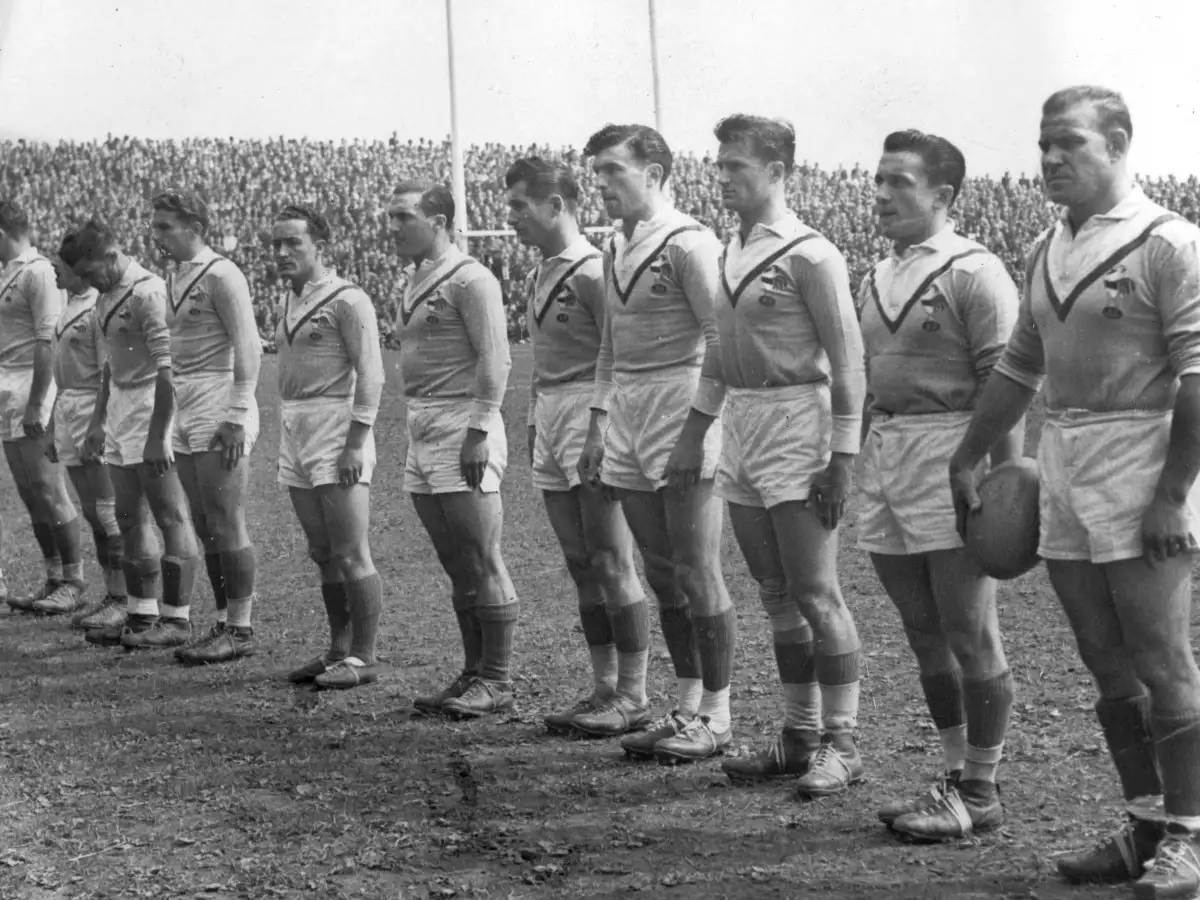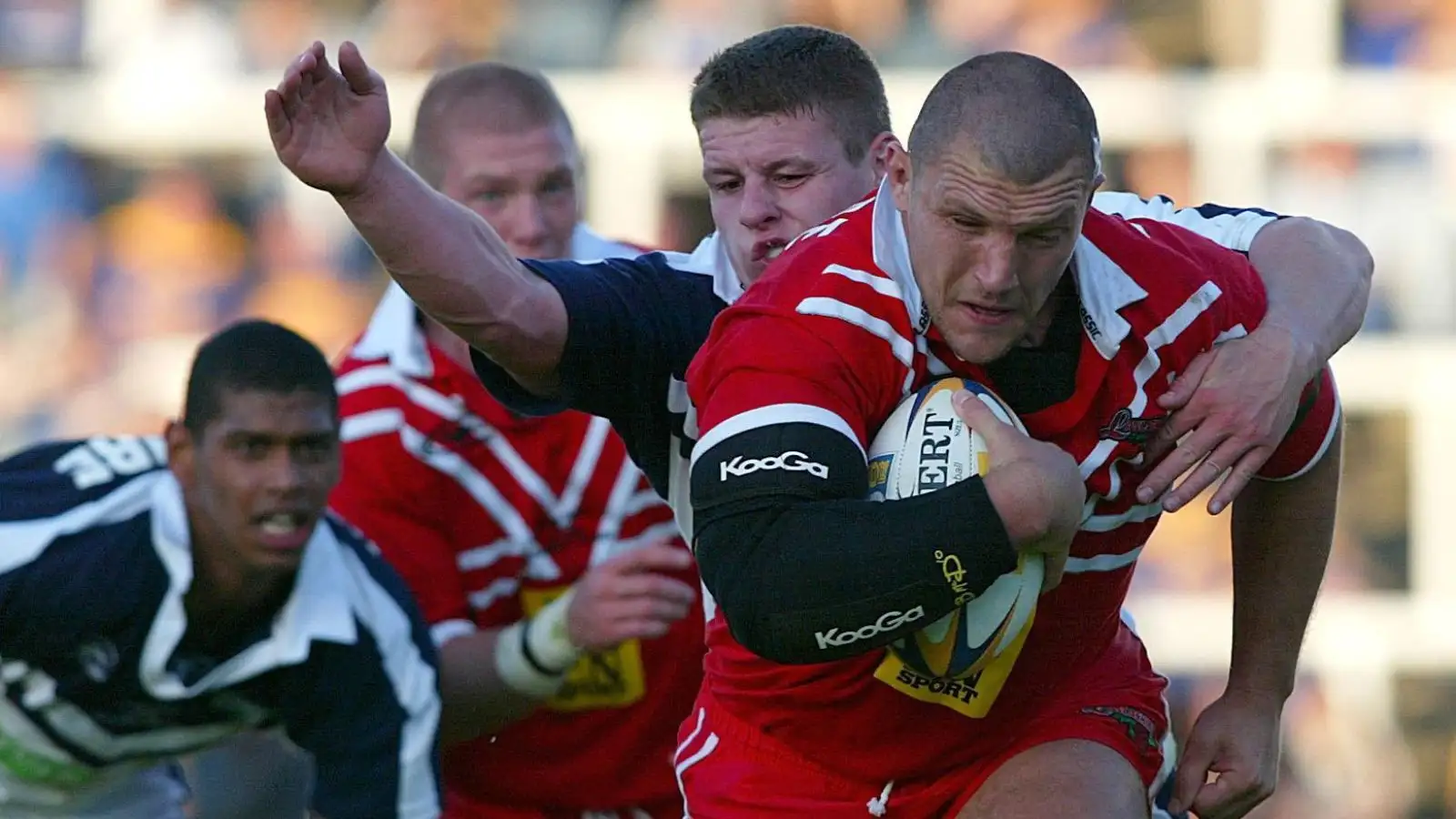80 years since French rugby league was banned: a tribute to pioneer Jean Galia

Rugby league in France has had a turbulent past to say the least and was even banned by the Vichy government in the Second World War; in this piece we pay tribute to pioneer Jean Galia.
Many see that as an act which the sport has struggled to recover from.
On This Day:
1941; The French Vichy government formally bans French Rugby League.
— 1895 (@1895blog) December 19, 2021
However, after Catalan Dragons became the first French team to win the Challenge Cup in 2018, before reaching the Super League Grand Final in 2021; whilst Toulouse reached the Super League for the first time, rugby league in France seems to be as strong as ever.
The Catalan story has been remarkable, following the script set by French rugby league in the past.
Introducing Jean Galia
Jean Galia is the man who has been credited as the founder of French rugby league in 1934, after playing rugby union for the country’s national side.
Born in March 1905 in Ille-sur-Tet, Jean Galia would become a renowned cross-code forward and was inducted to the Rugby League Hall of Fame in 1988; almost 40 years on from his death in Toulouse at the age of 43 in 1949.
📅 #OnThisDay in 1905, Jean Galia was born.
🇫🇷 The Frenchman is credited with establishing Rugby League [Rugby à XIII] in France in 1934.
👊 A second row forward, he played in @FFRXIII's first International Rugby League match and was the team's first captain.
🏉 #RFL125 pic.twitter.com/E6XKSLIbue
— Rugby Football League (@TheRFL) March 20, 2020
However, rugby in France before the code split looked more similar to the Northern Union’s rules, rather than the Rugby Football Union rules.
The sport grew in popularity, especially around Paris and all classes seemed to enjoy the sport, it drew huge crowds.
Jean Galia made his international rugby union debut for France in 1927, in a test match against England and featured regularly in their 15-man squad.
In 1931, France received a ban from union’s five nations tournament, and considered holding discussions with the RFL.
However, they decided to go the other way and in 1934 set up the International Federation of Amateur Rugby, to rival international rugby union’s governing body.
The background to rugby league in France
A year earlier the RFL had received a letter from two French journalists who worked for L’Auto (now L’Equipe), enquiring about the possibility of playing rugby league in France.
The RFL already had plans to grow the sport to France, as the chairman of the RFL John Wilson had connections at the newspaper Les Echos.
Later that year Les Echos sponsored the first international test to be played in France, between Great Britain and Australia.
The French press were blown away by the skills of the players and branded the sport as ‘neo rugby’.
Galia watched the game and paid close attention to the skills on show, he had just received a ban from French Rugby Union for taking a payment to play the game.
Galia was aggrieved by the decision, a similar dispute to what had happened in England in the late 1800.
A few days later Galia signed an agreement with the RFL to bring a French team over to Britain for a test in the next year.
France’s first games in England
Jean Galia formed a team and travelled over in March and had arranged six fixtures.
The side consisted mainly of union players who had never played league before, but did however have 14 international union caps between them.
Galia’s side did themselves justice, and even managed to beat Hull.
Support from across France flooded in, many agreeing that it was a much more entertaining code of rugby that what already existed in the country.
France was still banned from playing international rugby union, and Galia was keen to capitalise on this.
Early momentum and success
In April 1934 the French Rugby League was formed by Galia.
He had experience in playing against England for the rugby union side, knew that this was a rivalry which he could grow the sport on, at a time where the union side couldn’t.
Only a week after the French Rugby League was formed, Galia invited England to a test match Paris, where 34,000 fans watch England beat his side 32-21.
Despite losing, it was clear that the French were good enough to compete at the top level of international rugby league.
A year later, Galia’s men held England to a 15-15 draw in Paris, before sensationally beating a Welsh side, made up of the likes of Gus Risman, Jim Sullivan, and Jack Morley.
The domestic league was growing too, by the end of its first season the French Rugby League had 29 clubs, by the end of its second it had 171 and a year after it had 434 clubs.
Rugby league was now the popular code in France, whilst the union side were playing friendlies with Germany, Spain, and Romania, which attracted small crowds.
In a short space of time Galia had managed to grow rugby league into a sport which the French had fallen in love with.
In 1939 France travelled to St Helens where they faced England. They won 12-9, the first time that a French side in either code had won in England.
The French revolution in rugby league didn’t stop there, as at the end of the year they won their first European Championship, beating Wales 16-10.
Galia had capitalised on an era in France which saw a change in politics. He captured the working-class spirit which was seemingly embedded in the sport of rugby league and sold it to the people of France.
Any person debating the expansion of rugby league must read this book. Even aside from its main topic, emphasises the cultural foundation of the game; methods of expansion; and for me further demonstrates how RL doesn't do enough to embrace and support the French domestic comp. pic.twitter.com/gOKvMfJxIZ
— James Gordon (@jdgsport) August 23, 2020
Despite this, Galia tried to distance himself from politics, but found himself associated with the Popular Front, a socialist party in France.
They won the election and their minister for sport was a guest of honour at one of France’s international games in Paris.
Banned by the Vichy Government
Months after, war broke out and France was invaded by Hitler’s Germany. The country was divided into two but governed by the same fascist ideology.
One of the values of this government was the belief in amateur sports, and subsequently rugby league was banned.
Controversially, Football, which was also professional was allowed to continue but in an amateur form, whilst rugby league wasn’t.
The minster for sport in France declared, “The fate of rugby league is clear, its life is over, and it will quite simply be deleted from French history.”
Galia was informed that he would be expected to help unify both codes of the sport; all of rugby league’s assets would be transferred to rugby union, including its players, facilities, and memorabilia.
Tennis star Jean Borotra, who was formerly a union player, was the man who was giving the job to ensure that this was done.
Masters #RugbyLeague pays respect to Jean Galia founder of Rugby League in France pic.twitter.com/cF98KWqeap
— Masters Rugby League Referee (@Paul_Mastersrl) June 22, 2019
He reported to Joseph Pascot, who’s strict policy in banning rugby league may have been a more personal decision.
In 1921 and 1924 Pascot played for a Perpignan team who won the French Rugby Union Championship.
In 1926, he had his chance to get his hands on the trophy once more; however, his side fell sort, losing to Toulouse.
Days later, seven Perpignan players left the club after Galia offered them money to join Quillan, which made the pathway to the formation of professional rugby.
Perpignan would take a decade to recover after being devastated by the losses.
The banning of rugby league from the Vichy government was not ideological, it was personal.
French rugby league has never reached the heights that it did in the 1930’s, after failing to recover from the ban.
#OnThisDay in 1934, Jean Galia’s pioneering French #rugbyleague tourists recorded the first-ever victory on British soil when they defeated Hull 26-23 at the Boulevard in the fifth game of their six-match tour. #RFL125 pic.twitter.com/wPSuC2TXK6
— RL Cares (@RLCares) March 24, 2020
However, there may be light at the end of the tunnel, Catalans have been Challenge Cup champions and Super League grand finalists.
Toulouse are set to make their Super League debut.
Jean Galia is a legend of French rugby league, and it’s recent success may just stand on the foundations which he built in 1934.
READ MORE: French rugby league – forbidden no longer



